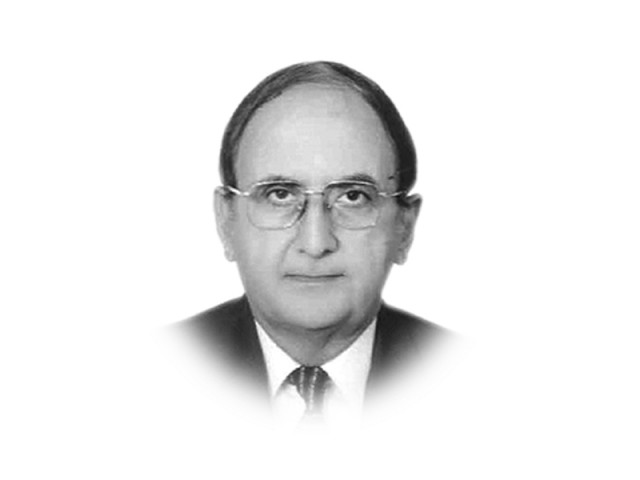2015 — the year of new opportunities?
Offers new opportunities to turn global, regional systems in its favour and neutralise anti-Pakistan propaganda

2015 — the year of new opportunities?
There are four major features of Pakistan’s current security and diplomatic profile: a forceful security operation in North Waziristan by the army; the targeting of all kinds of Taliban groups and their allies, including non-Pakistani militants based in the tribal areas; efforts to expand diplomatic interaction at the global level; and a stalemate in Pakistan-India relations.
In early 2014, the army authorities came to the conclusion that the Pakistani Taliban and their allies, as well as non-Pakistani militants based in the tribal areas, had to be knocked out of their safe haven. However, the hesitancy on the civilian government’s part delayed the initiation of the military operation in the tribal areas. It was in mid-June 2014 that the army authorities decided on their own to go ahead for a full-fledged military action in North Waziristan. Later, some operations were conducted in other tribal agencies. The civilian government was left with no option but to support them. The military operation that involved the army, the air force and the paramilitary forces has been a success to the extent that it has dislodged the Pakistani Taliban and their allies from their safe havens in North Waziristan, destroyed their weapons storage, IED manufacturing arrangements and training centres. This has drastically weakened the capacity of the Pakistani Taliban and their affiliates to strike back with force.
The current military operation in North Waziristan and the adjacent tribal agencies is targeting all kinds of Pakistani and non-Pakistani militant groups. Pakistan’s army chief has repeatedly maintained that the ongoing security operation is being conducted against all groups in a non-discriminatory manner. The empirical evidence available so far shows that the army has targeted all militants — Pakistani, Afghan and others.
The security operation in the tribal areas has enabled the Pakistan military (especially the army) to rehabilitate its reputation as a professional force at the international level. This has negated the widely shared perception at the global level that the army top command was selective in taking tough action against militant groups because it was said to be cultivating some of them. The non-discriminatory military operation strengthened Pakistan’s diplomatic position at the global level. Pakistan’s traditional allies, like the US, China, Great Britain and the European states, realised that the military has the capacity to deal effectively with the militants that employ violence to pursue their religious-political agendas. Therefore, they began to look towards the Pakistan military as integral to promoting peace and stability in Afghanistan. The US is now seeking the cooperation of the Pakistan military for helping Afghanistan’s new government to cope with the challenge of the Afghan Taliban.
The new Afghan government under President Ashraf Ghani has adopted a friendly and conciliatory disposition towards Pakistan because it is appreciative of the military operation in North Waziristan. The US and Afghanistan now seek Pakistan’s cooperation for addressing the challenge of the Afghan Taliban. Afghanistan and the US also want Pakistan to encourage the Afghan Taliban leaders, especially those maintaining links in Pakistan, to engage in a dialogue for political accommodation with the Kabul government. Pakistan is expected to extend such cooperation.
Pakistan wants Afghanistan and the US to take a firm punitive action against the leadership of the Tehreek-e-Taliban Pakistan currently based in Afghanistan. It also seeks to build military-to-military cooperation with Afghanistan for controlling unauthorised movement of people and goods across the Pakistan-Afghan border. Pakistan is also looking forward to increasing professional and training interaction between the two militaries. The indications are that Pakistan and Afghanistan will increase their cooperation for countering terrorism and security management in 2015.
Another recent diplomatic gain is the increased prospect of cooperation between Pakistan and Russia. In November, Russia and Pakistan signed a framework agreement for cooperation in several fields, including defence, security and counterterrorism. Pakistan must avail of the latest Russian offer to expand bilateral cooperation and trade so as to extend the scope of its diplomacy. Russia is expected to supply military helicopters and some other security equipment to strengthen Pakistan’s capacity for countering terrorism by the middle of 2015.
Pakistan’s relations have stalemated with the new Indian government led by Narendra Modi because of the latter’s emphasis on ultra-nationalism with a strong imprint of a hardline vision for a strident role by India. This policy is meant to strengthen the BJP’s position in the domestic context by showing that it can play tough with Pakistan. Therefore, there are little chances of a normal working interaction with India in the near future. Pakistan should freeze its relations with India at the current level and wait till the Modi government’s ultra-nationalism subsides. Meanwhile, Pakistan should expand its diplomatic interaction with Russia and other countries to increase its positive relevance within the international system. This will also contribute to countering India’s belligerent disposition.
The year 2015 offers new opportunities to Pakistan to turn the global and regional systems in its favour or at least neutralise anti-Pakistan propaganda. The new year can be a game-changer for Pakistan, provided its security policies continue to reflect the current realism and professionalism, improve internal security on a priority basis, make a realistic determination of long-term national goals and how to achieve them in an interdependent international system.
Published in The Express Tribune, December 15th, 2014.
Like Opinion & Editorial on Facebook, follow @ETOpEd on Twitter to receive all updates on all our daily pieces.















COMMENTS
Comments are moderated and generally will be posted if they are on-topic and not abusive.
For more information, please see our Comments FAQ